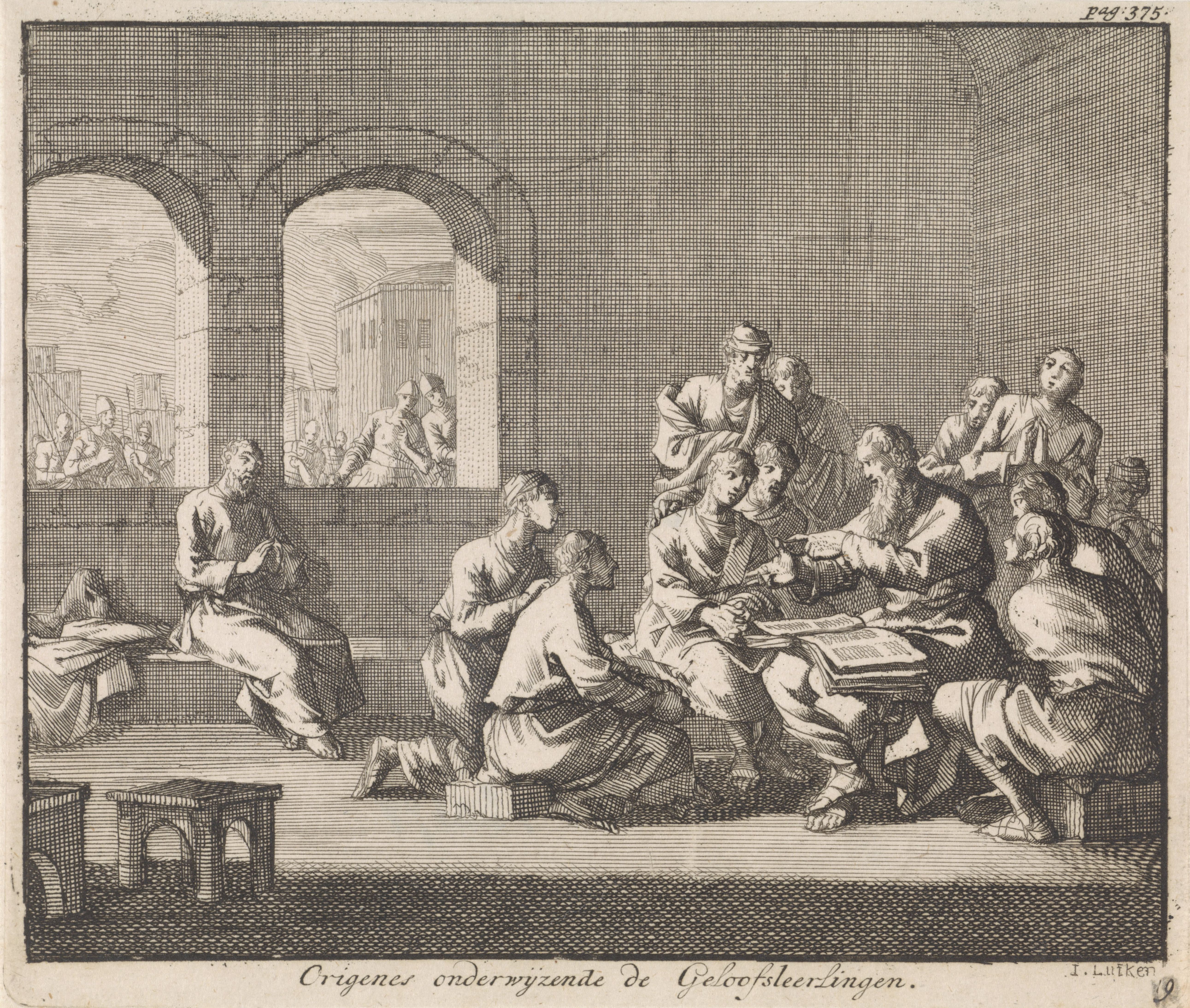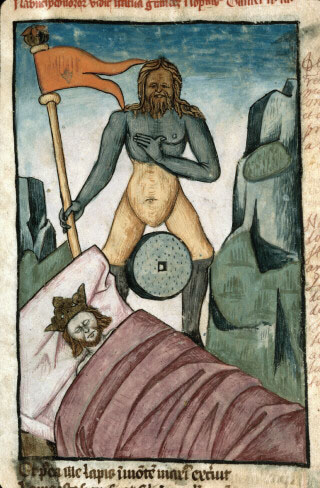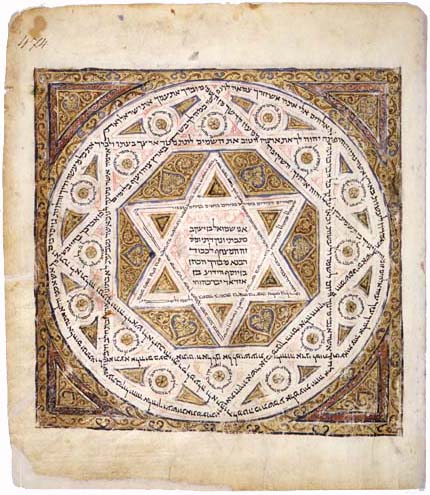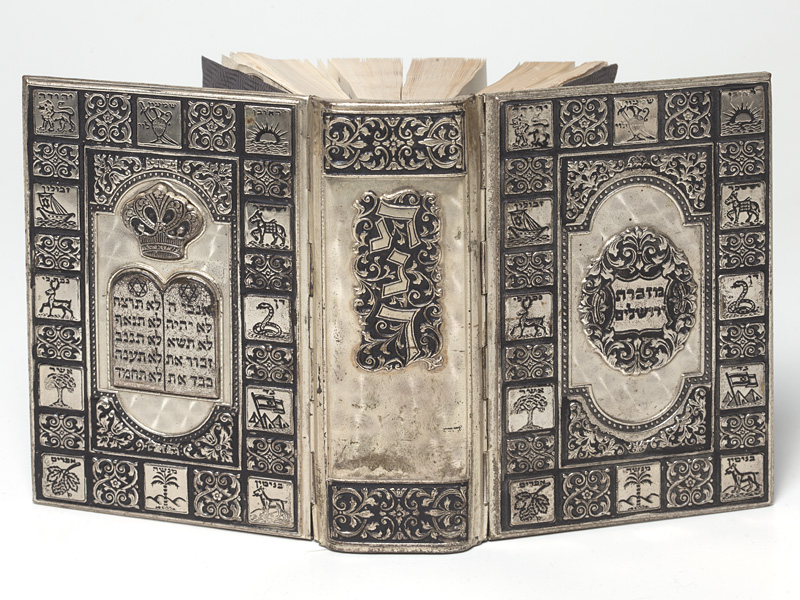|
Theodotion
Theodotion (; grc-gre, Θεοδοτίων, ''gen''.: Θεοδοτίωνος; died c. 200) was a Hellenistic Jewish scholar, perhaps working in Ephesus, who in c. 150 CE translated the Hebrew Bible into Greek. Whether he was revising the Septuagint, or was working from Hebrew manuscripts that represented a parallel tradition that has not survived, is debated. In the 2nd century Theodotion's text was quoted in ''The Shepherd of Hermas'' and in Justin Martyr's ''Dialogue with Trypho''. __NOTOC__ His finished version, which filled some lacunae in the Septuagint version of the ''Book of Jeremiah'' and ''Book of Job'', formed one column in Origen of Alexandria's ''Hexapla'', c. 240 CE. The Hexapla, now only extant in fragments, presented six Hebrew and Greek texts side-by-side: two Greek versions, by Aquila and Symmachus, and Theodotion's version following it, apparently reflecting a contemporary understanding of their historical sequence. Theodotion's translation was so widely copie ... [...More Info...] [...Related Items...] OR: [Wikipedia] [Google] [Baidu] |
Septuagint
The Greek Old Testament, or Septuagint (, ; from the la, septuaginta, lit=seventy; often abbreviated ''70''; in Roman numerals, LXX), is the earliest extant Greek translation of books from the Hebrew Bible. It includes several books beyond those contained in the Masoretic text of the Hebrew Bible as canonically used in the tradition of mainstream Rabbinical Judaism. The additional books were composed in Greek, Hebrew, or Aramaic, but in most cases, only the Greek version has survived to the present. It is the oldest and most important complete translation of the Hebrew Bible made by the Jews. Some targums translating or paraphrasing the Bible into Aramaic were also made around the same time. The first five books of the Hebrew Bible, known as the Torah or the Pentateuch, were translated in the mid-3rd century BCE. The remaining translations are presumably from the 2nd century BCE. The full title ( grc , Ἡ μετάφρασις τῶν Ἑβδομήκοντα, , The Translat ... [...More Info...] [...Related Items...] OR: [Wikipedia] [Google] [Baidu] |
Hexapla
''Hexapla'' ( grc, Ἑξαπλᾶ, "sixfold") is the term for a critical edition of the Hebrew Bible in six versions, four of them translated into Greek, preserved only in fragments. It was an immense and complex word-for-word comparison of the original Hebrew Scriptures with the Greek Septuagint translation and with other Greek translations. The term especially and generally applies to the edition of the Old Testament compiled by the theologian and scholar Origen, sometime before 240. The subsisting fragments of partial copies have been collected in several editions, that of Frederick Field (1875) being the most fundamental on the basis of Greek and Syrian testimonies. The surviving fragments are now being re-published (with additional materials discovered since Field's edition) by an international group of Septuagint scholars. This work is being carried out as The Hexapla Project under the auspices of the International Organization for Septuagint and Cognate Studies, and dir ... [...More Info...] [...Related Items...] OR: [Wikipedia] [Google] [Baidu] |
Codex Chisianus 88
Codex Chisianus 45 (also ''Codex Chigianus 45''; Vatican Library, Chigi R. VII 45; numbered 88 in Rahlfs Septuagint manuscripts, 87 in Field's ''Hexapla'') is a 10th-century biblical manuscript, first edited in 1772. The content of the so-called Syro-Hexaplar Codex (dated 616/7), which contains a Syriac translation of Origen's recension, has been adduced to corroborate the authenticity of the Greek text of Codex Chisianus. The Septuagint text of the Book of Daniel had disappeared almost entirely from Greek tradition at the end of the 4th century, being superseded by the revised text of Theodotion. John Gwynn concurred with Jerome that the church was right to adopt Theodotion's Greek text of ''Daniel'' in place of the LXX version attested in the Codex Chisianus: Indeed, the greater part of this Chisian Daniel cannot be said to deserve the name of a translation at all. It deviates from the original in every possible way; transposes, expands, abridges, adds or omits, at pleasure. Th ... [...More Info...] [...Related Items...] OR: [Wikipedia] [Google] [Baidu] |
Papyrus 967
Papyrus 967 is a 3rd-century CE biblical manuscript, discovered in 1931. It is notable for containing fragments of the original Septuagint text of the Book of Daniel, which was completely superseded by a revised text by the end of the 4th century and elsewhere survives only in Syriac translation and in Codex Chisianus 88. The manuscript is also important for early variants, both in the text of the Book of Ezekiel and of the Book of Daniel. The exact circumstances of the find are unclear, but the ancient Aphroditopolis is assumed to be the place where it was found. Description The scope was originally 59 sheets, which corresponds to 118 leaves or 236 pages. One side measures approximately 344 × 128 mm. The pages are written in one column with an average of 42 lines in a square uncial. For the Ezekiel text, a writer who differs from the Daniel and Esther texts can be identified. Various corrections by the scribe and later hands are entered. The text contains nomina sacra as well ... [...More Info...] [...Related Items...] OR: [Wikipedia] [Google] [Baidu] |
Symmachus The Ebionite
Symmachus (; grc-gre, Σύμμαχος "ally"; fl. late 2nd century) translated the Old Testament into Greek. His translation was included by Origen in his ''Hexapla'' and ''Tetrapla'', which compared various versions of the Old Testament side by side with the Septuagint. Some fragments of Symmachus's version that survive, in what remains of the ''Hexapla'', inspire scholars to remark on the purity and idiomatic elegance of Symmachus' Greek. He was admired by Jerome, who used his work in composing the ''Vulgate''. Life Eusebius inferred that Symmachus was an Ebionite (Ἐβιωνίτης Σύμμαχος ''"Symmachus the Ebionite"''), but this is now generally thought to be unreliable. The alternative is that he was a Samaritan who converted to Judaism. Epiphanius' account that Symmachus was a Samaritan who having quarrelled with his own people converted to Judaism is now given greater credence, since Symmachus' exegetical writings give no indication of Ebionism. At some time i ... [...More Info...] [...Related Items...] OR: [Wikipedia] [Google] [Baidu] |
Book Of Daniel
The Book of Daniel is a 2nd-century BC biblical apocalypse with a 6th century BC setting. Ostensibly "an account of the activities and visions of Daniel, a noble Jew exiled at Babylon", it combines a prophecy of history with an eschatology (a portrayal of end times) both cosmic in scope and political in focus, and its message is that just as the God of Israel saves Daniel from his enemies, so he would save all Israel in their present oppression. The Hebrew Bible includes Daniel in the ''Ketuvim'' (writings), while Christian biblical canons group the work with the Major Prophets. It divides into two parts: a set of six court tales in chapters 1–6, written mostly in Aramaic, and four apocalyptic visions in chapters 7–12, written mostly in Hebrew; the deuterocanonical books contain three additional sections, the Prayer of Azariah and Song of the Three Holy Children, Susanna, and Bel and the Dragon. The book's influence has resonated through later ages, from the community of ... [...More Info...] [...Related Items...] OR: [Wikipedia] [Google] [Baidu] |
Aquila Of Pontus
Aquila (Hebrew: עֲקִילַס ''ʿăqīlas'', fl. 130 AD) of Sinope (modern-day Sinop, Turkey; la, Aquila Ponticus) was a translator of the Hebrew Bible into Greek, a proselyte, and disciple of Rabbi Akiva. Relationship to Onkelos Opinions differ on whether he was the same person as Onkelos, who composed the leading Aramaic translation of the Pentateuch, known as Targum Onkelos. The names ''"Onkelos the proselyte"'' and ''"Aquilas the proselyte"'' are frequently interchanged in the Babylonian Talmud and Jerusalem Talmud. It is not clear how much (if any) of the Aramaic translation was based on the Greek. Greek translation Only fragments of this translation have survived in what remains of fragmentary documents taken from the Books of Kings and the Psalms found in the old Cairo Geniza in Fustat, Egypt, while excerpts taken from the Hexapla written in the glosses of certain manuscripts of the Septuagint were collected earlier and published by Frederick Field in his momentou ... [...More Info...] [...Related Items...] OR: [Wikipedia] [Google] [Baidu] |
Masoretic Text
The Masoretic Text (MT or 𝕸; he, נֻסָּח הַמָּסוֹרָה, Nūssāḥ Hammāsōrā, lit. 'Text of the Tradition') is the authoritative Hebrew and Aramaic text of the 24 books of the Hebrew Bible (Tanakh) in Rabbinic Judaism. The Masoretic Text defines the Jewish canon and its precise letter-text, with its vocalization and accentuation known as the ''mas'sora''. Referring to the Masoretic Text, ''mesorah'' specifically means the diacritic markings of the text of the Hebrew scriptures and the concise marginal notes in manuscripts (and later printings) of the Tanakh which note textual details, usually about the precise spelling of words. It was primarily copied, edited and distributed by a group of Jews known as the Masoretes between the 7th and 10th centuries of the Common Era (CE). The oldest known complete copy, the Leningrad Codex, dates from the early 11th century CE. The differences attested to in the Dead Sea Scrolls indicate that multiple versions of ... [...More Info...] [...Related Items...] OR: [Wikipedia] [Google] [Baidu] |
Origen Of Alexandria
Origen of Alexandria, ''Ōrigénēs''; Origen's Greek name ''Ōrigénēs'' () probably means "child of Horus" (from , "Horus", and , "born"). ( 185 – 253), also known as Origen Adamantius, was an early Christian scholar, ascetic, and theologian who was born and spent the first half of his career in Alexandria. He was a prolific writer who wrote roughly 2,000 treatises in multiple branches of theology, including textual criticism, biblical exegesis and hermeneutics, homiletics, and spirituality. He was one of the most influential and controversial figures in early Christian theology, apologetics, and asceticism. He has been described as "the greatest genius the early church ever produced". Origen sought martyrdom with his father at a young age but was prevented from turning himself in to the authorities by his mother. When he was eighteen years old, Origen became a catechist at the Catechetical School of Alexandria. He devoted himself to his studies and adopted an ascetic lif ... [...More Info...] [...Related Items...] OR: [Wikipedia] [Google] [Baidu] |
Hebrew Bible
The Hebrew Bible or Tanakh (;"Tanach" ''Random House Webster's Unabridged Dictionary''. Hebrew: ''Tānāḵh''), also known in Hebrew as Miqra (; Hebrew: ''Mīqrā''), is the Biblical canon, canonical collection of Hebrew language, Hebrew scriptures, including the Torah, the Nevi'im, and the Ketuvim. Different branches of Judaism and Samaritanism have maintained different versions of the canon, including the 3rd-century Septuagint text used by Second-Temple Judaism, the Syriac language Peshitta, the Samaritan Torah, the Dead Sea Scrolls, and most recently the 10th century medieval Masoretic Text, Masoretic text created by the Masoretes currently used in modern Rabbinic Judaism. The terms "Hebrew Bible" or "Hebrew Canon" are frequently confused with the Masoretic text, however, this is a medieval version and one of several ... [...More Info...] [...Related Items...] OR: [Wikipedia] [Google] [Baidu] |
Aquila Of Sinope
Aquila (Hebrew: עֲקִילַס ''ʿăqīlas'', fl. 130 AD) of Sinope (modern-day Sinop, Turkey; la, Aquila Ponticus) was a translator of the Hebrew Bible into Greek, a proselyte, and disciple of Rabbi Akiva. Relationship to Onkelos Opinions differ on whether he was the same person as Onkelos, who composed the leading Aramaic translation of the Pentateuch, known as Targum Onkelos. The names ''"Onkelos the proselyte"'' and ''"Aquilas the proselyte"'' are frequently interchanged in the Babylonian Talmud and Jerusalem Talmud. It is not clear how much (if any) of the Aramaic translation was based on the Greek. Greek translation Only fragments of this translation have survived in what remains of fragmentary documents taken from the Books of Kings and the Psalms found in the old Cairo Geniza in Fustat, Egypt, while excerpts taken from the Hexapla written in the glosses of certain manuscripts of the Septuagint were collected earlier and published by Frederick Field in his moment ... [...More Info...] [...Related Items...] OR: [Wikipedia] [Google] [Baidu] |
On Weights And Measures (Epiphanius)
''On Weights and Measures'' is a historical, lexical, metrological, and geographical treatise compiled in 392 AD in Constantia by Epiphanius of Salamis (c. 315–403). The greater part of the work is devoted to a discussion on Greek and Roman weights and measures. The composition was written at the request of a Persian priest, sent to Epiphanius by letter from the Roman emperor in Constantinople. Although five fragments of an early Greek version are known to exist, with one entitled Περὶ μέτρων καὶ στάθμων (''On Weights and Measures''), added by a later hand, this Syriac version is the only complete copy that has survived. Partial translations in Armenian and Georgian are also known to exist. Its modern title belies its content, as the work also contains important historical anecdotes about people and places not written about elsewhere. Two manuscripts of ''On Weights and Measures'', written in Syriac on parchment, are preserved at the British Museum in ... [...More Info...] [...Related Items...] OR: [Wikipedia] [Google] [Baidu] |
.jpg)





